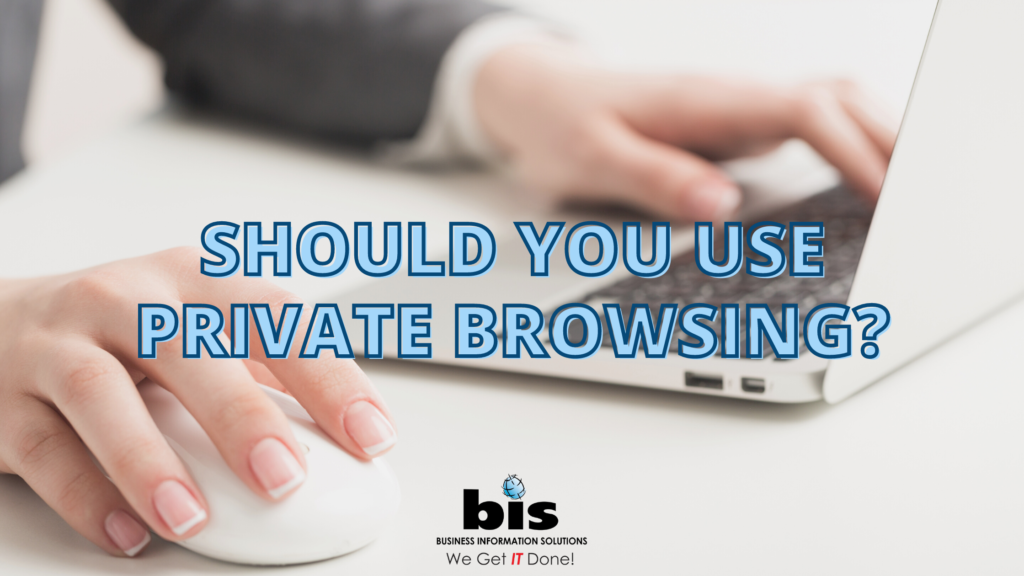We all know that what happens on the internet stays on the internet – forever. As you surf the web, every site, keystroke, and click are recorded, many of these on your own computer. This information is collected and used by marketing companies, websites, and even hackers to learn and analyze your online behavior. If you want to keep your browsing habits private, you’ll want to start using a feature known as private browsing. Enabling this mode in your browser cuts down on your stored information and helps you navigate the internet in privacy. But what is private browsing, and is it right for you? Read on to find out!
What is Private Browsing?
Private browsing is an optional feature that changes the way your browser records and stores your internet behavior. When you aren’t in private browsing mode, your browser remembers and stores loads of data in a cumulative browsing history. This includes things like your log-in information, file downloads, search queries, website cookies, and URLs you visited. It even stores snapshots of frequently visited websites for faster load-times in the future, a concept known as caching.
Your browsing history makes web surfing ultra-convenient by auto-filling search bars and links, autosaving usernames and passwords for future log-ins, and other great time-savers. But it also presents a clear snapshot of your user activity to anyone with access to your computer. This can be a real problem if you’re trying to hide a special gift or conducting online activities you’d rather keep private.
That’s where private browsing comes in. When private browsing is enabled, your browser doesn’t record any of your online activity. Your search history, websites, and other information are discarded as soon as you leave a site. Some data, like website cookies, will only be used during your browsing session and will be likewise discarded when you close your tab.
Every browser offers a form of private browsing, and they all follow the same basic rules. In Chrome, it’s known as Incognito Mode. Internet Explorer and Edge use InPrivate Browsing. Safari, Firefox, and Opera also offer private browsing modes to protect your online activity.
The Benefits of Private Browsing
Protect your online activity. The main benefit of private browsing is that it keeps your internet activities just that – private. This is especially beneficial if you’re using a public computer because your account information and browser history will be deleted as soon as you log out of your session.
No cookies. Website cookies learn your user behavior for more targeted marketing. For example, websites like Facebook use your website cookies to fill your feed with highly targeted ads. In private browsing mode, your browser doesn’t store website cookies, cutting down on the social spam.
Completely isolated browsing. Private browsing functions as an isolated browsing session, allowing you to log-in to multiple accounts on the same site. For example, you can log-in to your Google account in an open browser and then access another Google account in a private browsing window.
Is Private Browsing really secure?
The short answer is not really. While private browsing doesn’t record or store your online data in your web browser, it doesn’t stop other applications on your computer from monitoring your activity. If you have a keylogger or spyware application running on your computer, those programs could still monitor your browsing activity. Likewise, parental monitoring applications (like those on employee computers) can still take screenshots and access your online activity even in private browsing mode.
It’s important to remember that private browsing only prevents your computer from storing your browsing activity. It does nothing to stop activity logging on website servers, routers, or internet service providers. Even though your browsing history is removed from your computer, it’s usually always stored somewhere else.
For the ultimate online privacy, consider using a virtual private network (VPN). These create a private network by masking your IP address and encrypting your internet connection, even when using a public network.
Of course, you should always use a strong antivirus program to protect your computer and network, even when using private browsing mode. For more information on internet security or to learn about our range of security solutions, contact us today!
RELATED:
6 Cybersecurity Tips for Municipalities

About
is the technology leader on the Gulf Coast and is comprised of four divisions: Information Technology, Web Design & Digital Marketing, Office Equipment and Business Consulting. Together these divisions help local businesses exceed expectations and allow them to group to their full potential while minimizing risks. To learn more about , visit bistechnologygroup.com.
You may reach out to us at:
Phone: 251-405-2527
Email: plong@askbis.com











